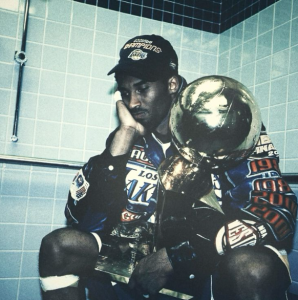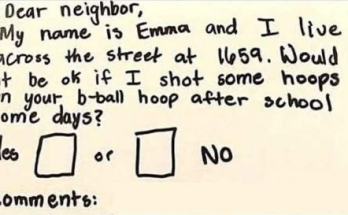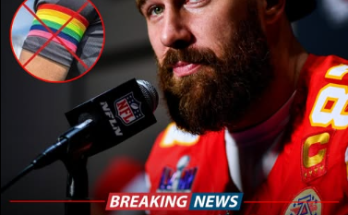“The NBA Has Been Soft Since Kobe Left”
Ever since Kobe Bryant retired in 2016—and especially after his tragic passing in 2020—a common refrain echoes across sports talk shows, barbershops, comment sections, and late-night debates among fans: “The NBA has been soft since Kobe left.” It’s a statement packed with nostalgia, frustration, admiration, and sometimes a misunderstanding of how the league has evolved. But like all bold claims, it deserves deeper exploration. Is the NBA truly softer today? Or is the legacy of Kobe Bryant so towering, so fierce, that his absence simply exposes what the game can no longer replicate?
To answer this, we must unpack what “soft” even means in the world of basketball—and what, exactly, Kobe represented.
1. Kobe Bryant: The Last Symbol of a Ruthless Era
For many fans, Kobe wasn’t just a superstar. He was an embodiment of a philosophy: the Mamba Mentality. It meant relentlessness, fearlessness, competitiveness that bordered on obsession, and a willingness to take and make the toughest shots in the biggest moments. He played through broken fingers, torn ligaments, a ruptured Achilles—shooting free throws on one leg before limping off the court. He barked at teammates, challenged them, pushed them, sometimes to a fault. But he expected of others what he demanded of himself: everything.
So when people say the NBA softened after Kobe left, what they often mean is that his spirit left—an approach to the game rooted in toughness and an old-school, unforgiving love of competition.
2. A League That Changed—On Purpose
But the NBA hasn’t softened by accident. It has, in fact, changed strategically.
Rule Changes
-
The league reduced hand-checking to increase offensive flow.
-
It implemented freedom-of-movement rules to open up spacing.
-
It cracked down on physicality in the paint.
-
It discouraged excessive contact on the perimeter.
These changes were not designed to weaken the game but to modernize it. A more fluid, scoring-oriented league is more watchable, marketable, and global. Today’s NBA prioritizes pace, skill, and spacing over wrestling matches in the post.
While some fans see this as softness, others see it as evolution.
3. Skill Over Force: A New Style of Toughness
The game today demands:
-
Higher three-point accuracy,
-
Faster decision-making,
-
Greater versatility,
-
Positionless switching,
-
Elite conditioning,
-
And smarter shot selection.
Players aren’t bulldozing through double teams in the same way they did decades ago—but they’re hitting 30-footers off the dribble, threading no-look passes, and moving at a tempo that early-2000s players rarely matched.
This isn’t a soft game. It’s just a different one.
4. Social Media and Player Empowerment: Toughness or Fragility?
Critics often argue that modern players are “too sensitive” or “too passive.” Stars request trades more boldly than ever. Players openly talk about mental health struggles. Teammates compliment opponents on social media.
This is a massive cultural shift from Kobe’s era of stoicism.
But is it softness—or transparency?
Kobe himself became a vocal advocate for mental resilience and emotional openness later in life. He encouraged young athletes to embrace both their strength and their vulnerability. The NBA’s modern culture reflects this shift.
5. Load Management: The Flashpoint Debate
Nothing inflames fans—and especially older-era players—more than load management. Kobe played 20 seasons with an almost self-destructive commitment. Today’s stars, meanwhile, sit out to avoid injury. Kawhi Leonard, Joel Embiid, and many others became symbols of this trend.
To some, this is softness.
To others, it’s longevity and smart science.
The truth? It’s both. The league learned from the Achilles tears, the knee blowouts, and the careers cut short. The NBA has gotten smarter about protecting its investments. But fans miss the days when stars played 82 games with pride.
6. The Disappearance of True Rivalries
Another reason people claim the NBA is softer: rivalries feel less personal now. Kobe-Allen Iverson, Kobe-T-Mac, Kobe-Pierce, Kobe-Raja Bell—these were battles.
Today’s rivalries are often overshadowed by friendships, business ventures, and offseason training sessions. Players grew up in AAU circuits together. They sign with the same agencies. They star in commercials together.
The fire is still there—but it’s quieter, more strategic, and less outwardly hostile.
7. The Legacy of a Warrior in a League That Values Harmony
Kobe played with a chip on his shoulder. Many modern stars play with a chip on their Instagram captions.
The contrast is sharp.
But it’s also unfair to assume that players like Giannis Antetokounmpo, Jimmy Butler, Devin Booker, Kawhi Leonard, Russell Westbrook, or Anthony Edwards lack toughness. These are gritty competitors with their own versions of Mamba energy.
What’s missing isn’t toughness—it’s theatre. Kobe’s intensity was visible, dramatic, cinematic. Today’s intensity is more controlled.
8. What Fans Really Miss: The Emotional Edge
When people say the NBA is soft, they usually mean:
-
Fewer personal battles,
-
Less trash talk,
-
Less physicality,
-
Less willingness to play hurt,
-
Less cold-blooded competitiveness,
-
More smiling, swapping jerseys, and brand-building.
Fans miss the mythic nature of Kobe: the snarls, the dagger fadeaways, the death-stare defense, the tales of 3 a.m. workouts.
Kobe wasn’t just a player. He was a character in the story of the NBA, a larger-than-life embodiment of drive.
9. The NBA Didn’t Get Softer—We Lost a Standard Setter
The league changed. Styles changed. Culture changed. But perhaps the biggest difference is that Kobe left a void no one has filled. Players try—and some come close—but his blend of toughness, skill, mentality, and narrative power is unmatched.
It’s not that the NBA became soft.
It’s that Kobe made the old NBA feel harder.
10. The Final Truth
The NBA today is:
-
More skilled,
-
More global,
-
More analytical,
-
More player-driven,
-
Less physical,
-
More self-aware,
-
And more fluid.
Soft?
Maybe in some ways.
Stronger in others.
But one thing is certain: without Kobe, the game feels different. The league lost a symbol. A measuring stick. A warrior whose intensity defined an era.
And no matter how talented today’s stars are, no matter how competitive the league becomes, that absence will always linger.



